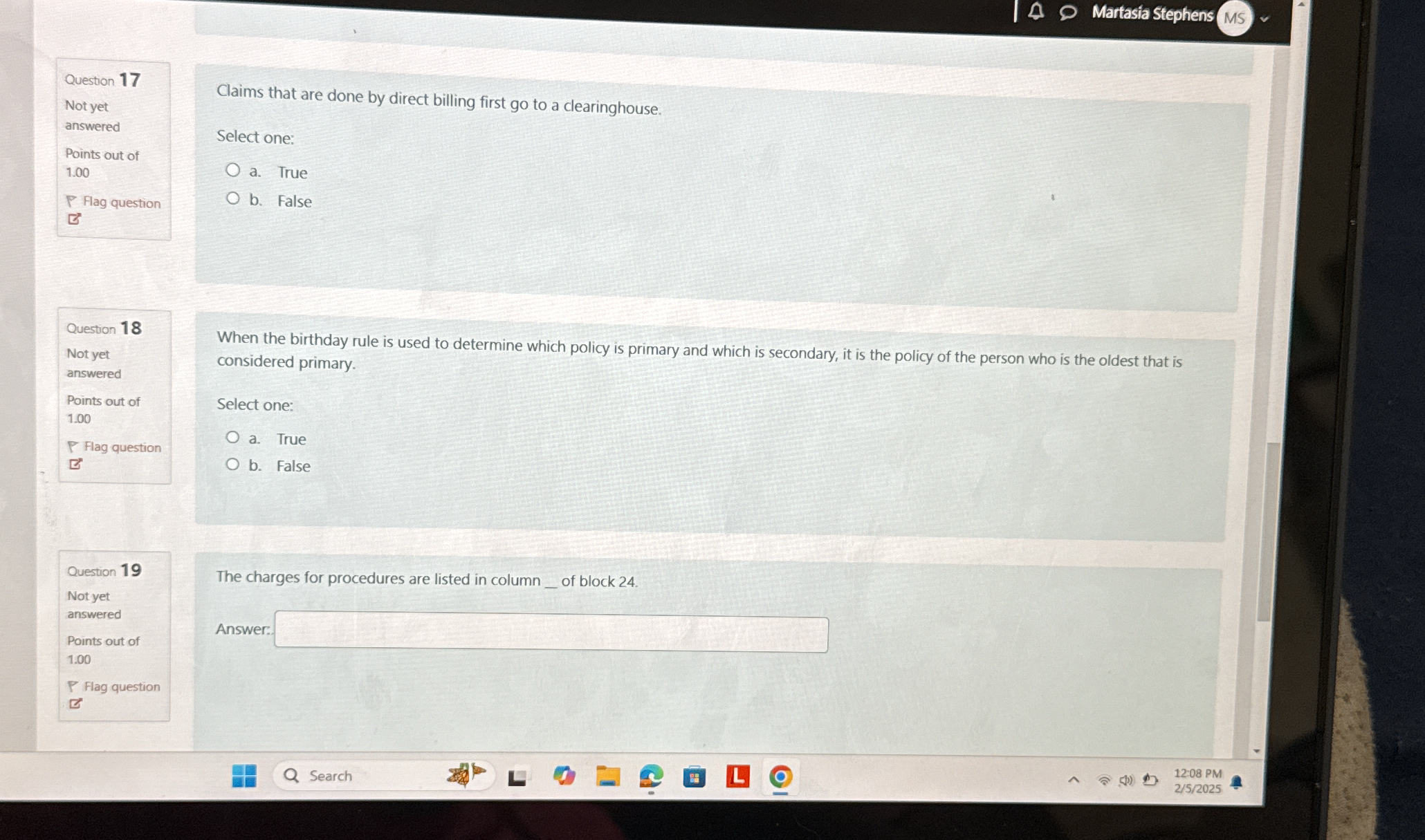Claims that are done by direct billing first go to a clearinghouse. When the birthday rule is used to determine which policy is primary and which is secondary, it is the policy of... Claims that are done by direct billing first go to a clearinghouse. When the birthday rule is used to determine which policy is primary and which is secondary, it is the policy of the person who is the oldest that is considered primary. The charges for procedures are listed in column ___ of block 24.

Understand the Problem
The questions are related to insurance claims processes and billing rules. They involve true or false answers regarding specific policies and procedures, as well as identifying details within a given form.
Answer
17: False, 18: False, 19: Column G.
["The answer to Question 17 is False. Claims that are done by direct billing do not always go to a clearinghouse.","The answer to Question 18 is False. The birthday rule considers the policyholder whose birthday comes first in a calendar year as primary, not age.","The answer to Question 19 is Column G. In block 24 of CMS-1500, charges are usually listed in column G."]
Answer for screen readers
["The answer to Question 17 is False. Claims that are done by direct billing do not always go to a clearinghouse.","The answer to Question 18 is False. The birthday rule considers the policyholder whose birthday comes first in a calendar year as primary, not age.","The answer to Question 19 is Column G. In block 24 of CMS-1500, charges are usually listed in column G."]
More Information
The birthday rule is commonly used in the insurance industry to determine which parent's insurance is considered primary for a child. For the CMS-1500 form, understanding block 24 is key for correct claim submissions.
Tips
For Question 18, remember that the birthday rule is based on month and day, not year.
AI-generated content may contain errors. Please verify critical information